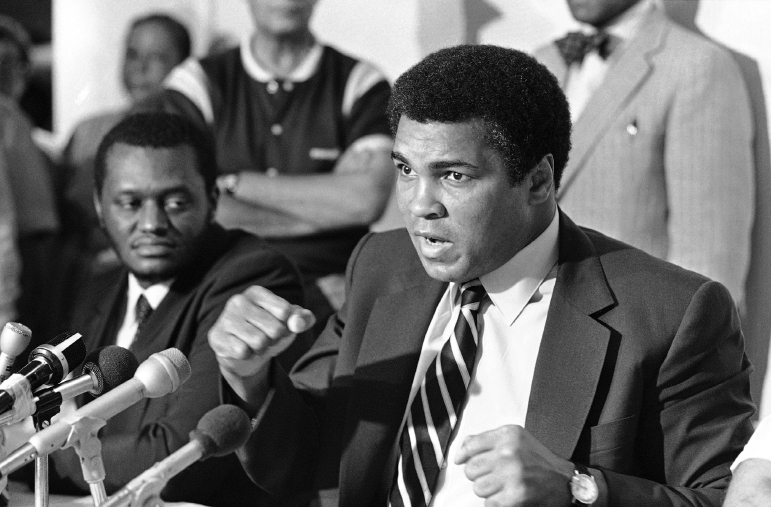6.2 FUNCTIONS OF VERBAL COMMUNICATION
Printed Page 182
FUNCTIONS OF VERBAL COMMUNICATION
Language guides our interactions
He was crowned “Sportsman of the Century” by Sports Illustrated, and “Sports Personality of the Century” by the BBC.3 He is considered by many to be the greatest boxer of all time, a fact reflected in his nickname, “The Greatest.” He certainly was the most verbal. Muhammad Ali made a name for himself early in his career by poetically boasting about his abilities (“Your hands can’t hit what your eyes can’t see!”) and trash-talking his opponents. “I’m going to float like a butterfly, and sting like a bee,” he told then-champion Sonny Liston—who Ali dubbed “the big ugly bear”—before defeating him to claim the World Heavyweight title. Ali was just as verbal outside of the boxing ring. Early in his professional career, he embraced Islam, and subsequently abandoned his birth name of Cassius Clay because the surname came from his ancestors’ slave owners. Years before public sentiment joined him, Ali spoke out repeatedly against the Vietnam War. His refusal to participate in the military draft cost him both his world title and his boxing license (both of which were eventually reinstated). Years later, he continues to be outspoken—on behalf of humanitarian causes. His work with U.N. hunger relief organizations has helped feed tens of millions of people (“Service to others is the rent you pay for your room here on earth”), and he was a United Nations Messenger of Peace and a recipient of the Presidential Medal of Freedom. Whether in the boxing ring or on a charity mission, he has used his prowess with verbal communication to achieve his goals and dreams.
Similar to Muhammad Ali, we all use verbal communication to serve many different functions in our daily lives. Let’s examine six of the most important of these, all of which strongly influence our interpersonal communication and relationships.
